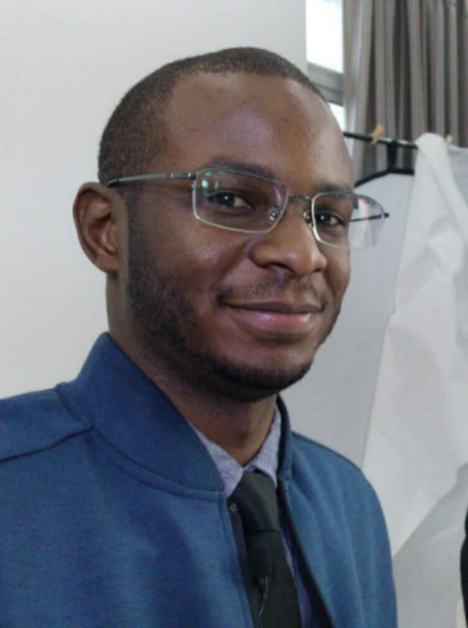
My name is Brandon J Bethel, a PhD candidate pursuing Marine Meteorology at the Nanjing University of Information Science and Technology. Although my research focus is concerned with surface gravity waves, because I am from The Bahamas, a small island developing state (SIDS), I have also invested a great deal of time in research into the blue economy and its implications for Sustainable Development Goal 7 (Ensure access to affordable, reliable, sustainable and modern energy for all) and 14 (Conserve and sustainably use the oceans, seas and marine resources for sustainable development).
Social responsibility for Young Scientists
The basis of all human social interaction, I believe, is based on the foundation of trust or the lack thereof. Trust, in turn, is founded upon integrity and it is scientific integrity and rigor that has led to the rapid societal, economic, and technological development of the 20th and 21st centuries. Pressured by social media platforms and the race to be first, young scientists may consider that plagiarism and faking data are viable paths for career progression but this, in addition to leading to irreversible reputational damage on a personal level amongst other scientists, also erodes the trust that the non-scientific majority has in the scientific minority. Large-scale misinformation and disinformation already retards the global COVID-19 vaccination effort and though not equally critical to humanity’s survival on the short-scale, realization of the SDGs can only happen when science is conducted in a transparent manner and real, repeatable results can be acquired by all. Human society is dependent on people either learning science or trusting those that that have. Integrity is thus an extremely important characteristic for young scientists to not only merely consider in their daily activities, but also embody.
Your research work relates to SDGs
Presently, I written and submitted for peer-review four papers entitled “Caribbean Sea Offshore Wind Energy Assessment and Forecasting”, and “Blue Economy and Blue Activities: Opportunities, Challenges, and Recommendations for The Bahamas”, “Joint Offshore Wind and Wave Energy Resources in the Caribbean Sea”, and “Bidirectional Modeling of Surface Winds and Significant Wave Heights in the Caribbean Sea”. To date, the former two papers have been accepted, and the latter two papers have been published. I am also currently preparing another two papers that will respectively tackle the problem of wind-wave interactions under hurricane (Dorian) forcing and the contribution of ocean renewable energy to achieving SDG 7 in The Bahamas.
Your Local context priorities and challenges
Although The Bahamas is an archipelagic nation, the greatest irony is that I had to come to China to learn about the ocean and thus the greatest priority and challenge is that of ocean literacy. As a case in point, excluding fishermen and those directly engaged in coastal/marine tourism, few people understand the importance of the ocean to the national economy. I believe that in order to trigger economic revival and additional growth through the blue economy and realization of the SDGs, ocean literacy must first be ensured throughout the nation and other SIDS.
Your actions towards the SDGs and sustainability
I am currently in the process of applying for a research grant from the Bahamas Development Bank to assess the offshore wind and solar, wave, thermal, salinity resources of The Bahamas. Publications will be generated from this research and an ocean literacy program be devised at the conclusion of the project. Additionally, I have taken part in the Fifth Xiamen Symposium on Marine Environmental Sciences held from January 11th – 14th in Xiamen, China as the student representative in the Expert Panel and on behalf of The Bahamas, petitioned the global audience for greater cooperation with SIDS. Ocean literacy was my greatest concern for those within my own country due to public apathy towards Hurricane Dorian (2019) prior to its catastrophic landfall.
Change and impact resulting from your Action
Due to COVID-19 travel restrictions, I have not been able to return home to communicate my research findings with others outside of my university, but it is intended the Bahamas Development Bank research grant will permit me a platform by which I can show others how ocean renewable energy can first supplement and then supplant existing fossil fuel power generation facilities. I believe that if I am successful in demonstrating that an appropriate mix of offshore wind and solar, as the most mature forms of renewable energy technology, can supply a large proportion of the electricity needed to power our economy, I can extend this to other sources of renewable energy and supply a greater proportion of electricity renewably.
Future Aims and Targets towards SDGs
Following the completion of the Bahamas Development Bank research project that is focused on ocean renewable energy, work will commence on how that energy can be used in supporting ocean observations and offshore mariculture activities. This will help towards the realization of SDGS 2. 7. 11. 13. 14. 17 for The Bahamas before this model is applied in an appropriately modified format for other Caribbean and global SIDS.
Young Scincetists for The Sustainable Development Goals
A campaign produced by CAS-TWAS Network for Sustainable Development Goals